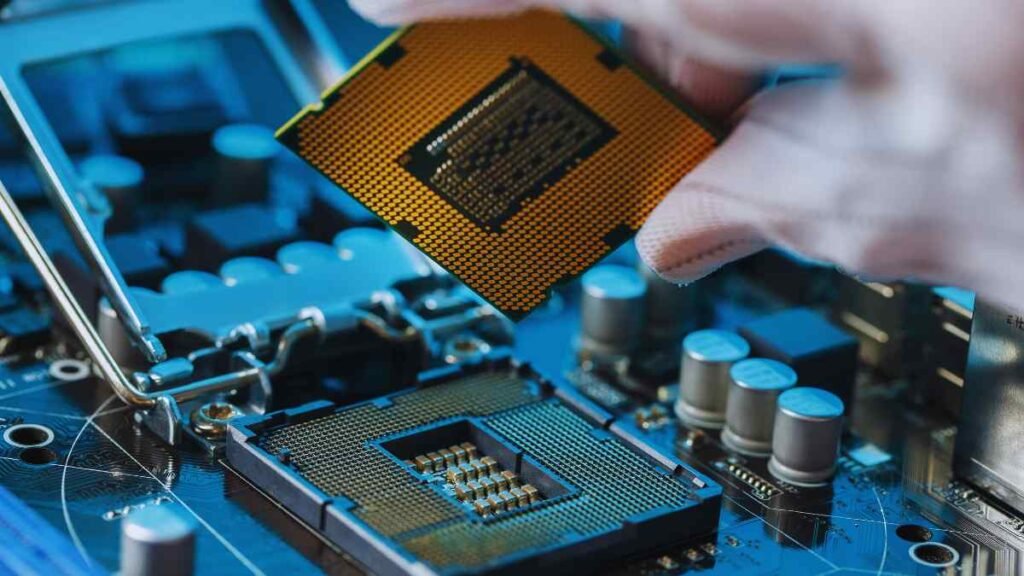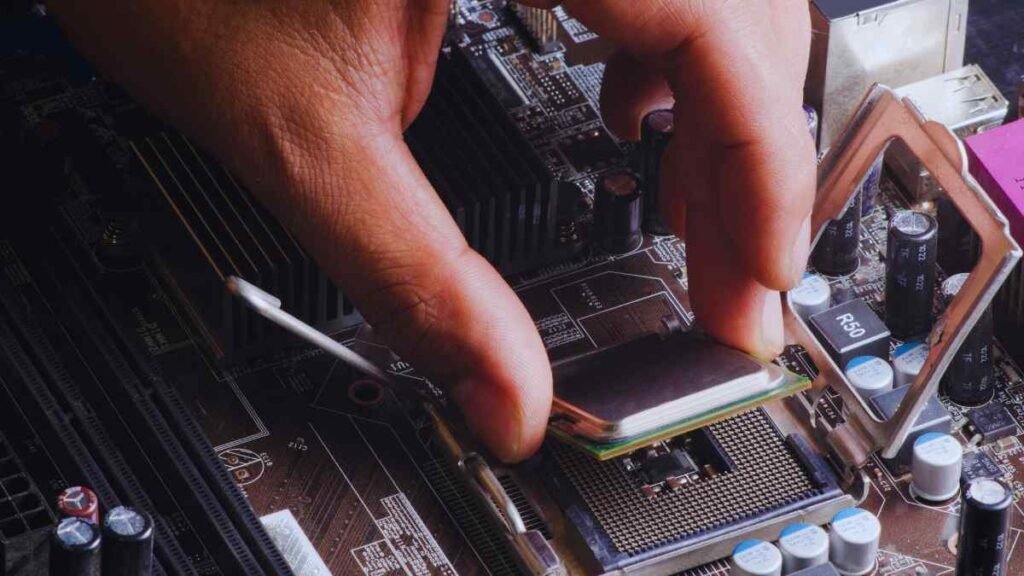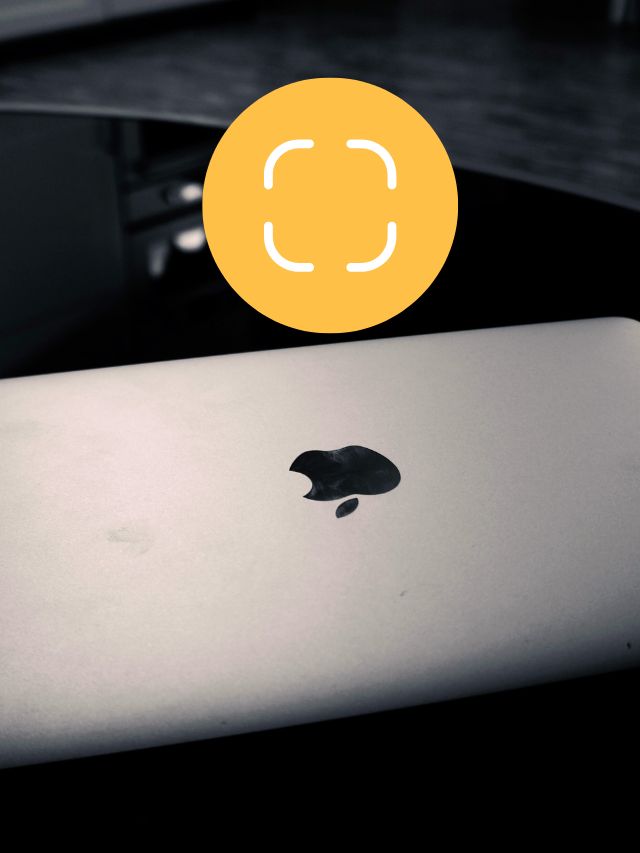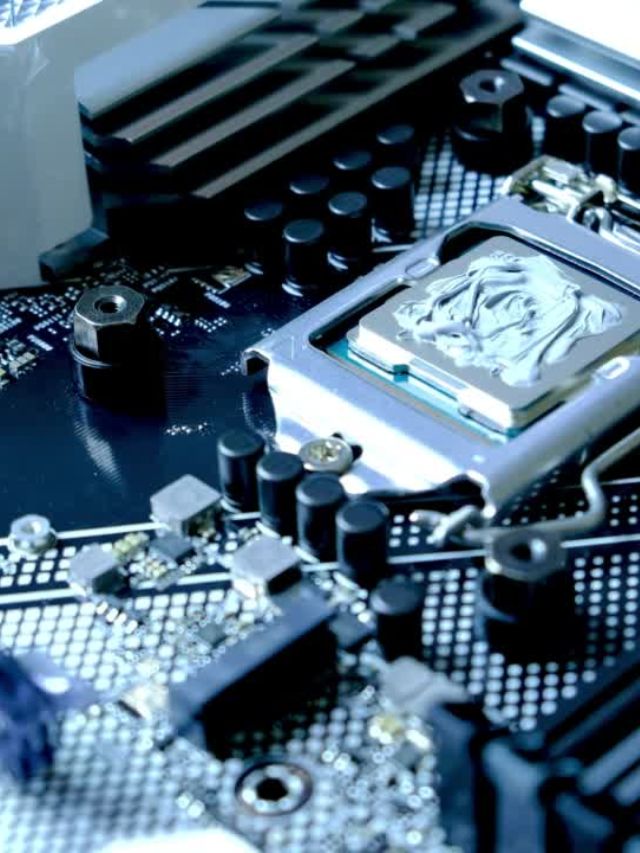Why Is My CPU Overheating -Is your computer fan whirring louder than usual? Are you experiencing random shutdowns or slow performance? These could be signs of your CPU overheating. A Central Processing Unit (CPU) is the brain of your computer, and just like any hard-working brain, it generates heat. However, if this heat isn’t properly managed, it can lead to serious problems for your computer.
In this blog post, we’ll delve into the world of CPU overheating and equip you with the knowledge to diagnose the problem and keep your computer functioning smoothly.

Common Causes of why is my cpu overheating
There are several reasons why your CPU might be overheating. Let’s examine a few of the typical offenders:
- Dust Buildup: Over time, dust bunnies can accumulate inside your computer case, clogging vents and fans. This restricts airflow, making it difficult for hot air to escape and cool components like the CPU.
- Improper Ventilation: Where you position your computer can also impact its temperature. Placing it on a carpeted surface or in a cramped space can block airflow. Additionally, using your computer in a hot and stuffy environment adds extra thermal stress.
- Demanding Applications: Running intensive programs like video editing software or games pushes your CPU to work harder, which naturally generates more heat. If your cooling system isn’t robust enough to handle this increased workload, overheating can occur.
- Failing Fans: Fans are the workhorses of your computer’s cooling system. If a fan malfunctions or stops spinning altogether, it can significantly hinder the ability to dissipate heat. why is my cpu overheating?
- Dried Out Thermal Paste: Thermal paste is a special substance applied between the CPU and the heatsink (the component that absorbs heat). This paste helps transfer heat away from the CPU. Over time, thermal paste can dry out and become less effective, leading to overheating.
- Improper Heatsink Installation: If the heatsink isn’t properly secured to the CPU, it won’t make good thermal contact, hindering heat transfer. In some cases, this can be caused by user error during installation.
Signs of why is my cpu overheating
When you ask yourself “why is my cpu overheating” then, here are some of the red point to be aware of:
- Frequent shutdowns: An unexpected shutoff is the computer’s way of protecting itself from damage caused by overheating.
- Blue Screen of Death (BSOD): This infamous blue screen can sometimes be caused by CPU overheating. why is my cpu overheating?
- System performance issues: If your computer feels sluggish or unresponsive, it could be due to thermal throttling. This is when the CPU automatically reduces its clock speed to prevent overheating, resulting in slower performance.
- Abnormal fan noise: Your computer’s fans will typically spin faster when the CPU is under load. However, if the fan noise becomes unusually loud or constant, it could be a sign that the system is struggling to cool itself down. why is my cpu overheating?
- High CPU temperatures: The best way to confirm overheating is to monitor your CPU temperature. Most computers have built-in temperature monitoring tools or you can download free third-party applications. Generally, temperatures exceeding 80°C (176°F) are cause for concern.
Read also: Which Processor is Best in Laptop

Solutions for why is my cpu overheating
If you suspect your CPU is overheating, don’t panic! There are several steps you can take to address the issue:
- Cleaning is Key: Open your computer case and carefully clean the inside with compressed air to remove dust buildup from vents, fans, and the heatsink. Be sure to hold the fan blades in place while spraying to avoid damaging them.
- Improve Ventilation: Ensure your computer has plenty of breathing room. Place it on a hard, flat surface like a desk and avoid carpeted areas. If possible, position your computer in a cool, well-ventilated area.
- Adjust Software Settings: Consider closing unnecessary programs that might be taxing your CPU. You can also adjust power management settings to conserve energy and reduce heat generation.
- Monitor Fan Performance: Listen for any unusual fan noises and visually inspect the fans to ensure they are spinning freely. If a fan has failed, you will need to replace it.
- Reapply Thermal Paste: If you’re comfortable doing so, you can replace dried-out thermal paste with fresh paste. This is a more technical solution, so be sure to research the specific process for your CPU model.
- Upgrade Cooling System: For some computers, especially those used for gaming or intensive tasks, the stock cooling system might not be sufficient. Upgrading to a more powerful cooler can be a good option.
Advanced Solutions and Prevention Tips for why is my cpu overheating
When you are thinking why is my cpu overheating? then the solutions mentioned above should address most overheating issues, here are some additional steps for more persistent problems:
- Undervolting: This involves slightly reducing the voltage supplied to your CPU. This can be a delicate process, but if done correctly, it can lower operating temperatures without sacrificing performance. Important: Undervolting can be risky if not done properly and may void your warranty. Research thoroughly before attempting this.
- Overclocking Considerations: If you’ve overclocked your CPU (pushed it beyond its default settings), this can generate more heat. Consider returning your CPU to its stock settings or dialing back the overclock slightly to improve thermal performance.
- Investing in a Cooling Pad: A cooling pad can provide additional airflow to your laptop, especially helpful for users who frequently work on their lap or in warm environments.
- Regular Maintenance: Make cleaning your computer a regular habit to prevent dust buildup. Depending on your environment, cleaning every few months might be sufficient. In dusty environments, you may need to clean more often.
- Software Updates: Keeping your operating system and drivers updated can improve system efficiency and potentially reduce heat generation.

Conclusion
Now,you might got the answer of your question why is my cpu overheating? By following these tips, you can effectively diagnose and address CPU overheating issues. Remember, prevention is always better than cure. Developing good habits like regular cleaning and proper ventilation will go a long way in keeping your CPU cool and your computer running smoothly.
If you’re still experiencing overheating issues after trying these solutions, consulting a professional computer technician is recommended.They can diagnose the problem and recommend further course of action, which might involve repairs, and components replacements.
Welcome to Uttam Computer! I’m Rakesh Sharan, the creator and author behind this blog, With a deep passion for technology and years of experience in computer training…





